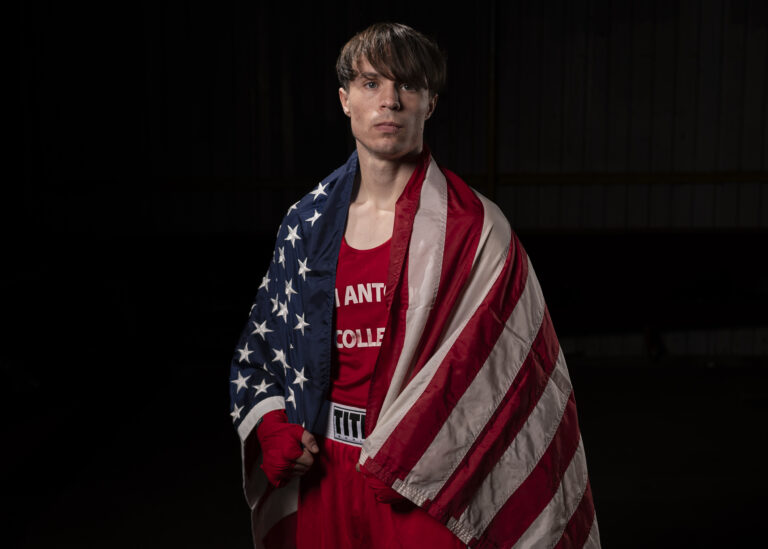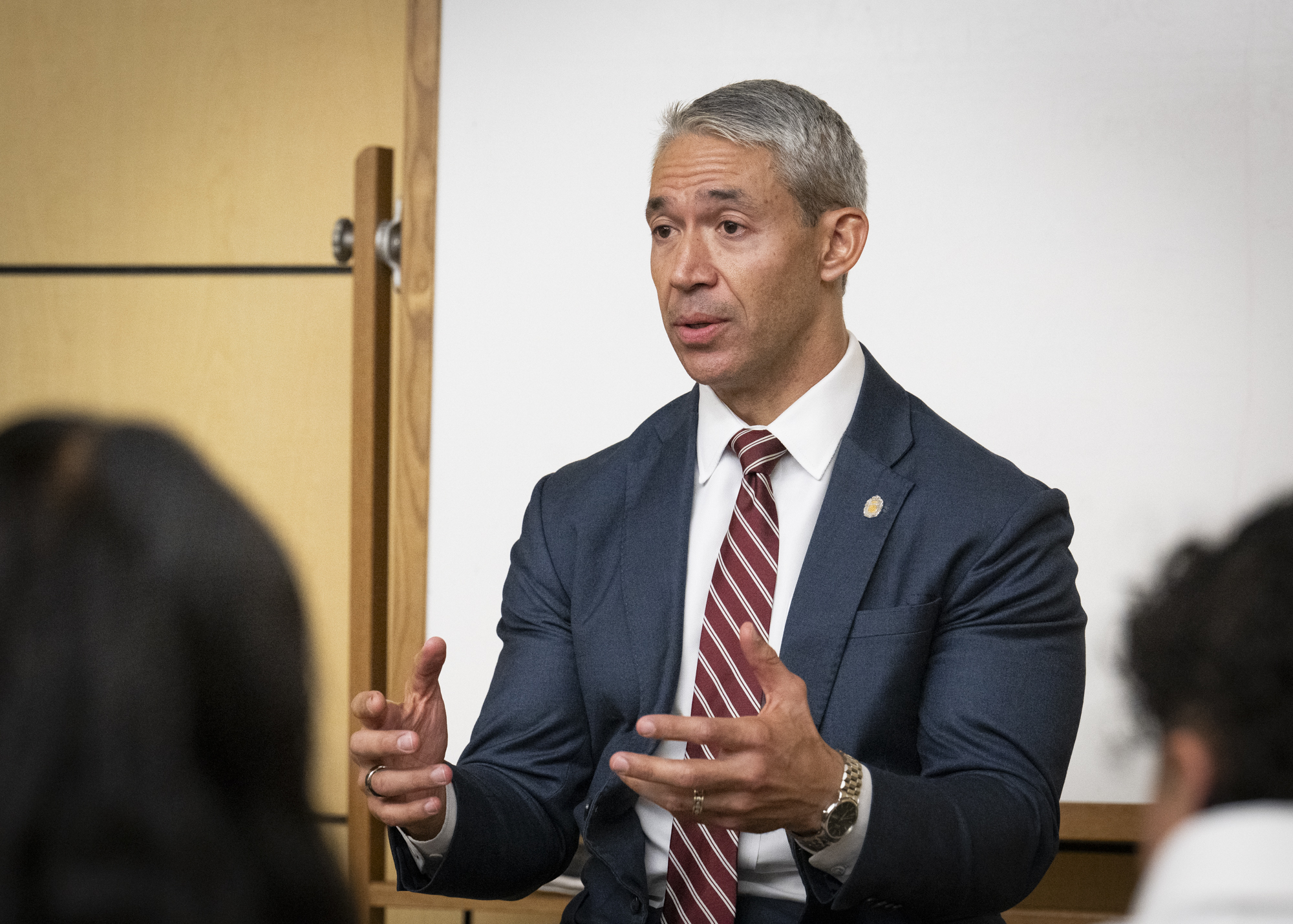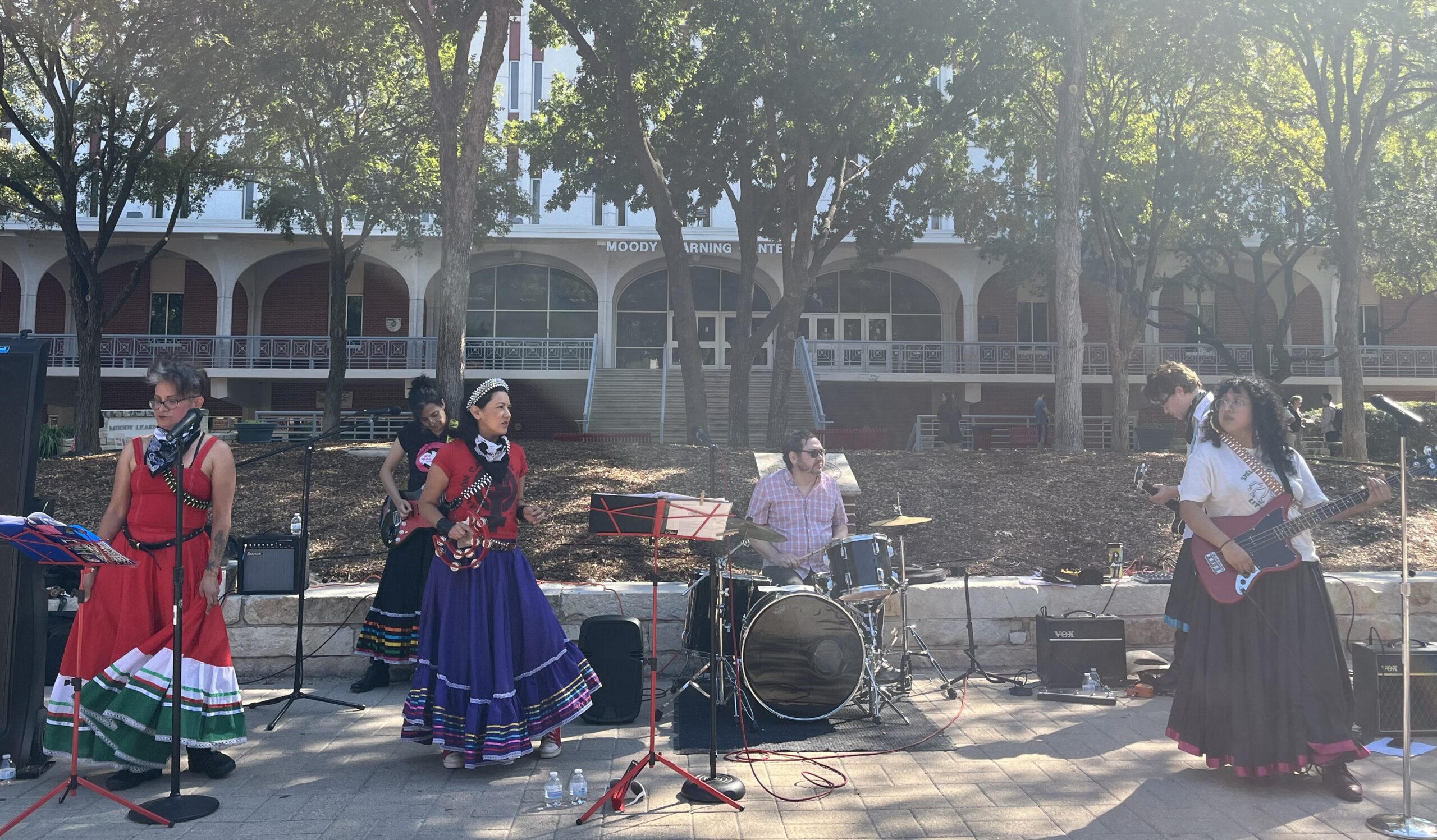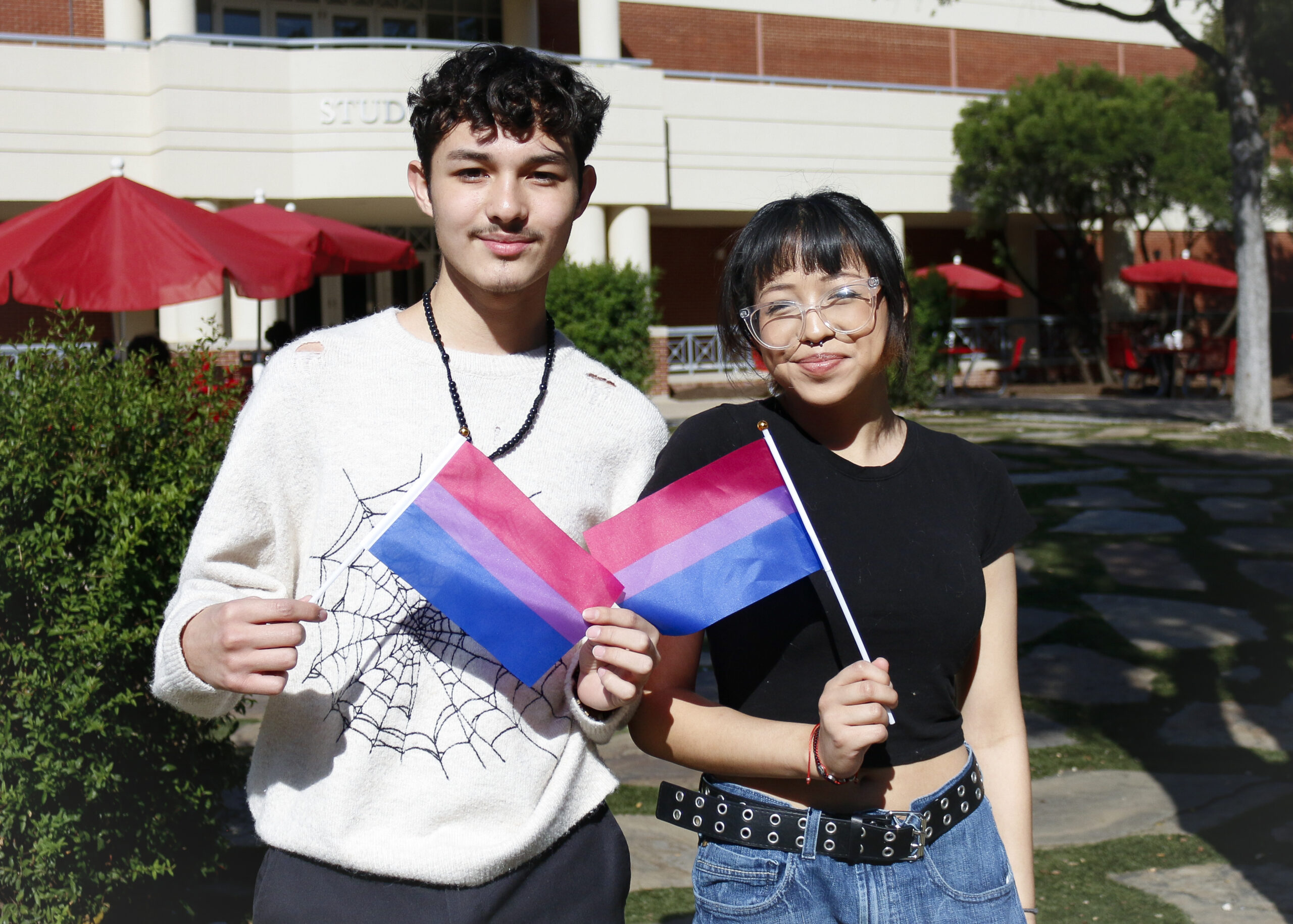When Cameron Rankin’s boss called him into the hallway on October 28, 2020, Rankin assumed he was getting fired. He grabbed his bag and walked into the hallway, where two FBI agents were waiting, guns drawn, to arrest him. The agents walked Rankin out of the building, where 40 law enforcement officers in tactical gear had been standing ready.
“My immediate thought at that moment was just ‘f—,’” the 25-year-old told SAC Student News.
When Rankin looks back at his arrest and the events that led up to it, he tries not to dwell too much on the shame and regret he carries. He prefers to channel those feelings into something positive — his quest for redemption.
“When I turned 18, I was turned loose onto the streets as a traumatized young man,” Rankin, who earned an associate’s degree from SAC and now serves as president of the college’s Boxing Club, said. “I spent years seeking purpose and fell in with bad crowds.”
In June 2020, Rankin took to San Antonio’s streets during the George Floyd protests.
“I went out there to riot, and I was radicalized by a militant, extremist organization,” he said.
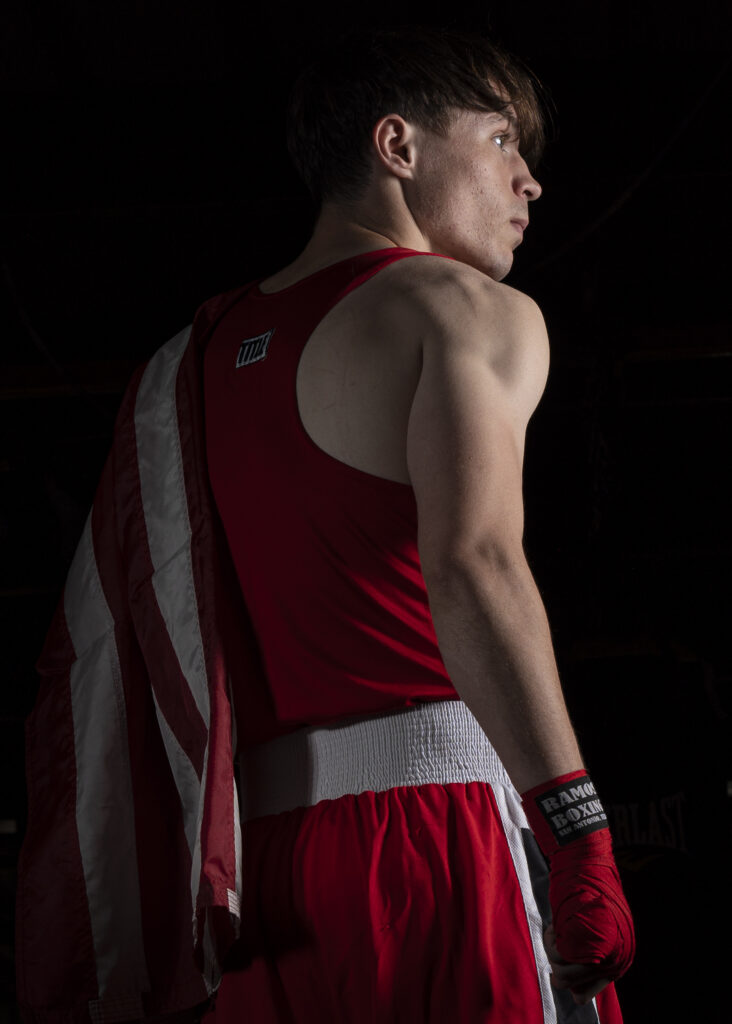
Rankin’s activities during that time, led to his arrest and conviction for the federal crime of illegal possession of a firearm by a person previously committed to a mental institution. He served a year and a half in federal prison.
“I’m a felon because I did some crazy things,” he said. “I’m ashamed, but I thought I was doing the right thing. I was dangerous and could easily have killed someone for the stuff I believed. I’m very lucky I got arrested when I did.”
Rankin grew up without a father in New Orleans — a place he recalls as “the city that care forgot.” His mother was a violent alcoholic.
“My mother was a slave to the bottle,” Rankin said, describing how he often came home to drunken beatings.
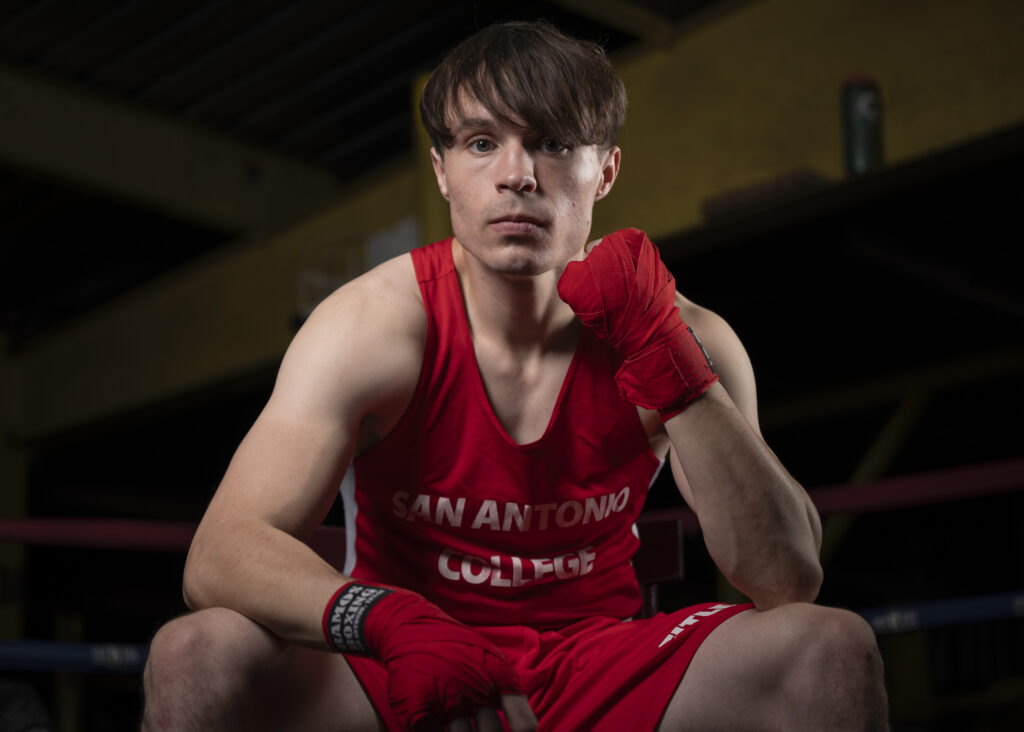
He said his mother also “kept him sedated” with the antipsychotic drugs Seroquel and Abilify, and the antidepressant Trazodone. He started taking the drugs around the age of 5.
“My brain was cooked,” Rankin said. “I felt like a zombie.”
Rankin’s rage and resentment for his mother and the cruelty he endured manifested as violent, destructive behaviors.
“I was an angry, unstable kid who had no idea where to put that rage,” he said.
Rankin still suffers some neurological issues from taking powerful pharmaceuticals until he was 17.
“I don’t think there’s anything wrong with me now,” Rankin said. “All the trauma and the time I spent on pharmaceuticals are why my brain’s a little messed up.”
“I went from a brawler to an actual boxer. Boxing made me a better person.”
— Cameron Rankin
Rankin was 7 when Hurricane Katrina devastated New Orleans in 2006. He said his grandmother “kidnapped” him after his mother refused to evacuate their home, taking Rankin to the Salvation Army where his grandmother worked. The storm winds shattered the storefront glass, sending shards into Rankin’s face.
“A six-inch piece of glass was sticking out of my head,” he said.
After Katrina, Rankin’s mother left him to live with his grandmother, who moved to San Antonio after the storm. Rankin said his grandmother did her best to care for him as his destructive behavior continued.
He was 9 when he threw a food can at a police officer. A judge ordered that Rankin be institutionalized for psychiatric evaluation.
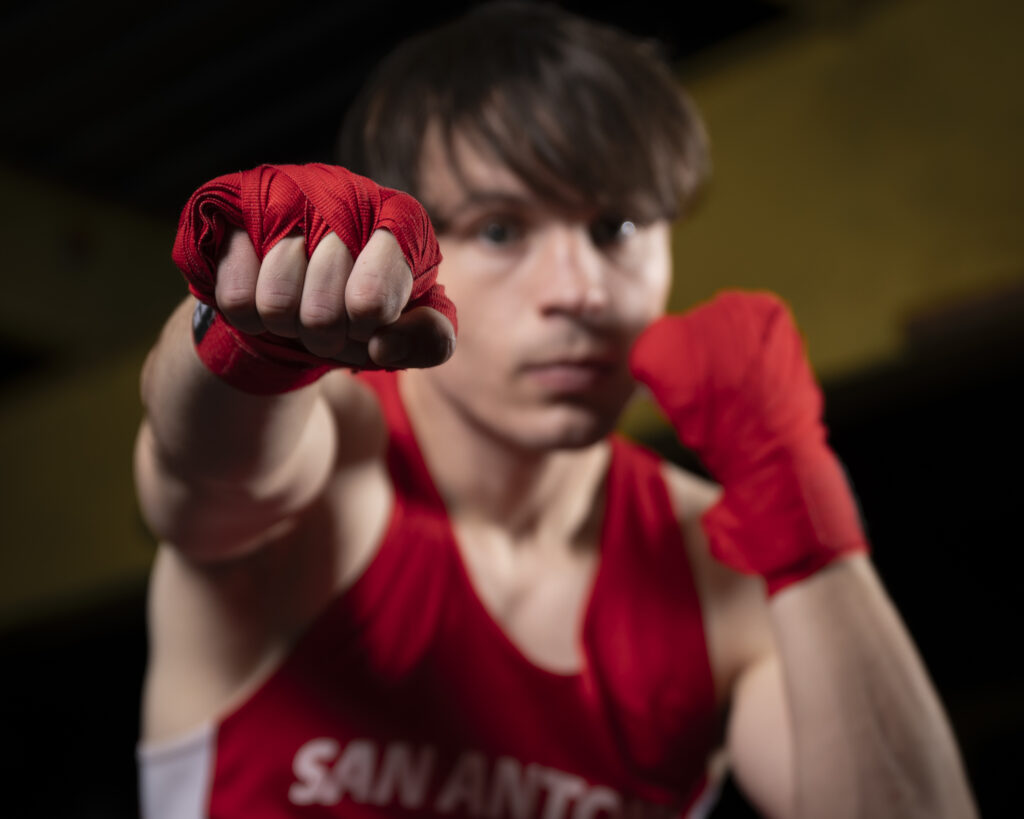
“That’s the incident that saved me in the end,” Rankin said about the federal statute that sent him to prison and disrupted the destructive path he was on.
Rankin was 14 and in foster care when his grandmother passed away. Her death caused him to spiral.
“The way I carried myself changed dramatically,” he said. “I was an emotional hairpin, fighting and destroying as much as I could every day.”
With his grandmother out of the picture, Rankin bounced around in the foster care system until he was eventually transferred to a halfway house, which meant even less accountability in his life.
“Cameron was living his life day-by-day with no direction when I first met him. He was like a firecracker, waiting to explode.”
— Coach Hector Ramos
When Rankin finally stopped taking all the pharmaceutical drugs he’d been on since he was 5, he said he was “absolutely out of my mind” for the first six weeks after he stopped taking them.
After high school, Rankin enrolled at San Antonio College and lived in campus housing. He completed one semester before dropping out. As he gravitated to destructive people and groups, Rankin became suicidal.
“I didn’t care for myself anymore,” he said. “I was searching for a purpose to make my worthless life worth something. I was an insane person.”
In the summer of 2020, the George Floyd protests provided the destructive purpose Rankin was seeking. He would often openly carry an AK-47 rifle at protests, hoping law enforcement officers or someone else would give him a reason to use it.
“I didn’t think my life had value, and that idea became very warped in 2020,” he said. “I thought, Let me sacrifice myself and be this monster for the betterment of the world around me. I’ll be a martyr.”
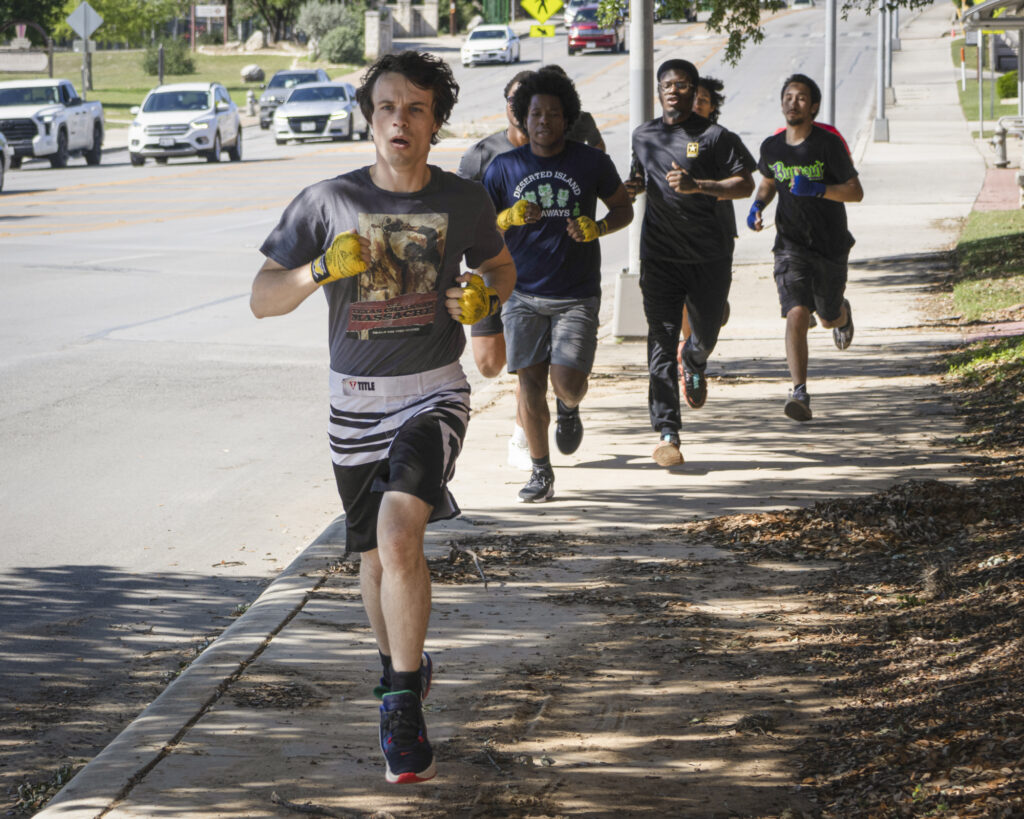
His actions drew the attention of federal law enforcement officers, and when the ATF sent him a letter telling him that his stay as a child in a psychiatric institution meant he was legally prohibited from owning or possessing a firearm, he sent a belligerent letter back. It sealed his fate.
Rankin was released from prison in March 2022. He was living at a halfway house when he re-enrolled at SAC for the fall semester that year.
He was looking for something to help him start moving forward in life when he joined the boxing club.
“At first, I was like, ‘I just got out of prison. Let me see how many college kids’ butts I can kick,” Rankin said. “I was angry and aggressive, and I would come in and swing as hard as I could.”
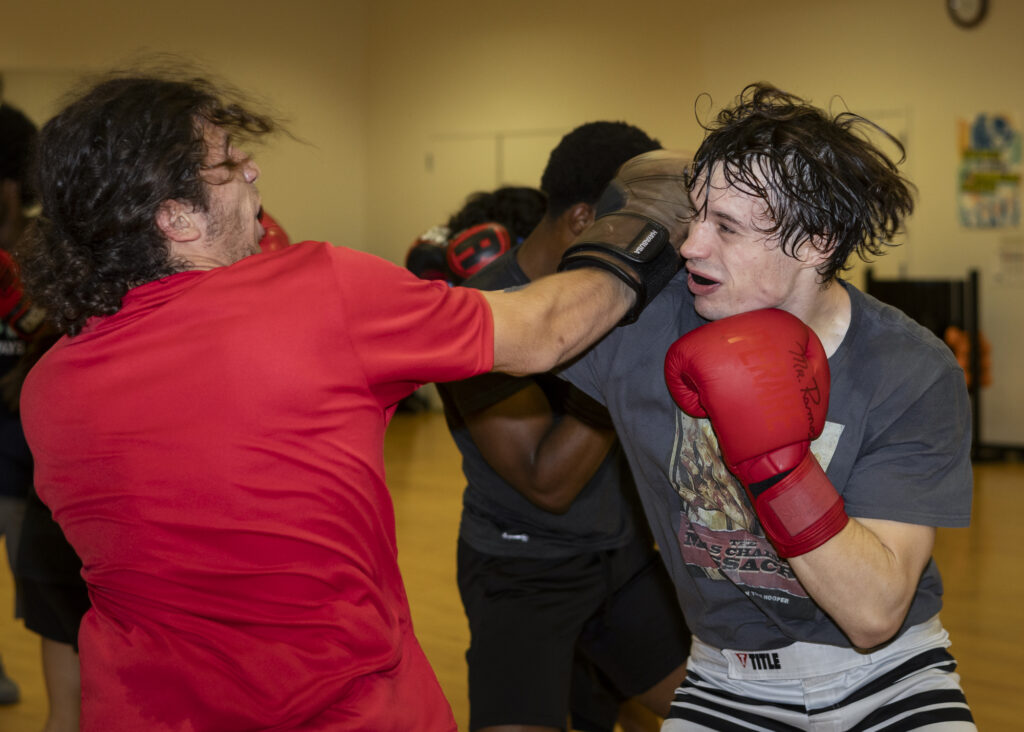
Boxing Coach Hector Ramos runs SAC’s boxing club. Ramos, who has 150 wins in 180 amateur fights, has helped Rankin find a healthier outlet for his anger. When Rankin first joined the boxing club, his peers avoided him. When he’d sit down, people moved away from him.
“Cameron was living his life day-by-day with no direction when I first met him,” Ramos told SAC Student News. “He was like a firecracker, waiting to explode.”
Ramos quickly earned Rankin’s trust, and Rankin started training hard. Over time, he noticed his punches softening when he sparred with his peers, and he worried he was losing his power and becoming weaker.
“Maybe it’s because you actually like these people now,” Ramos told him.
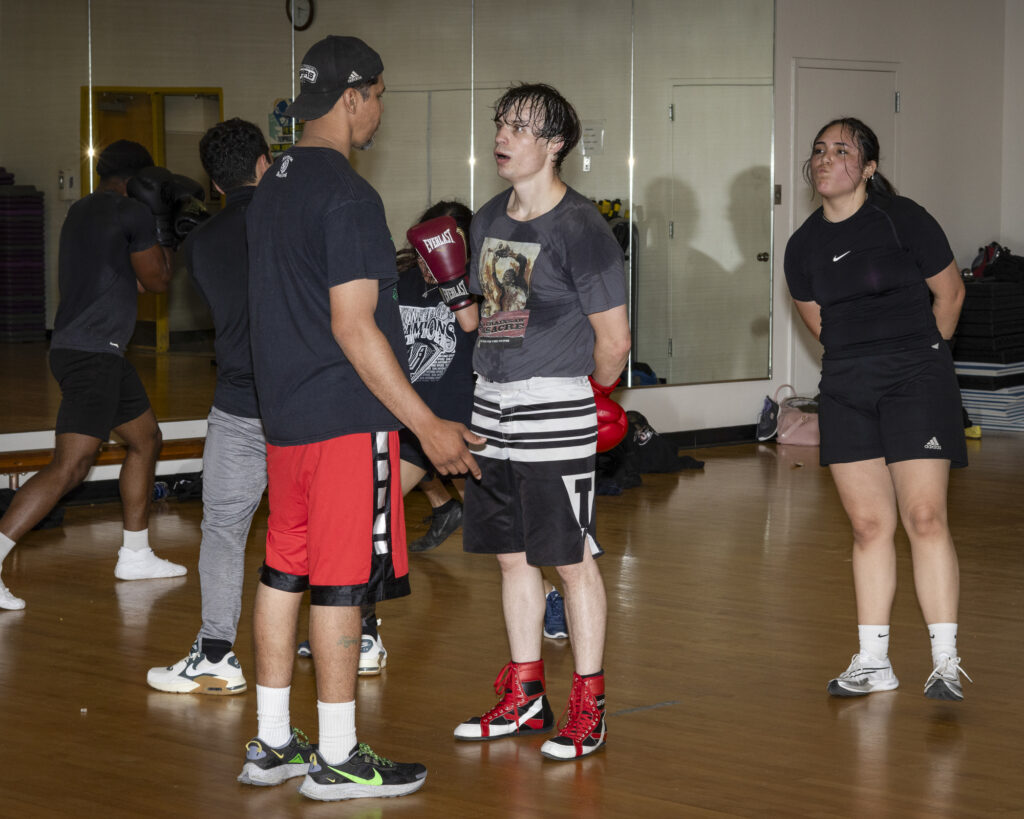
Rankin realized he was right. He hadn’t lost power; he just didn’t want to hurt people anymore.
“I went from a brawler to an actual boxer,” Rankin said. “Boxing made me a better person.”
“Cameron had a lot of love to give, but being an only child he had nowhere to put it,” Ramos said. “Now he does. I think he just needed a role model and community.”
Rankin said Ramos has become the father figure he never had.
“Coach Ramos is a great man,” Rankin said. “He’s tough, and he knows how to motivate people. He taught me I can’t afford to be angry at the world all the time. I have to focus on the things I can control. He helped me transition away from that really angry boy to a leader and someone people can like and be proud of.”
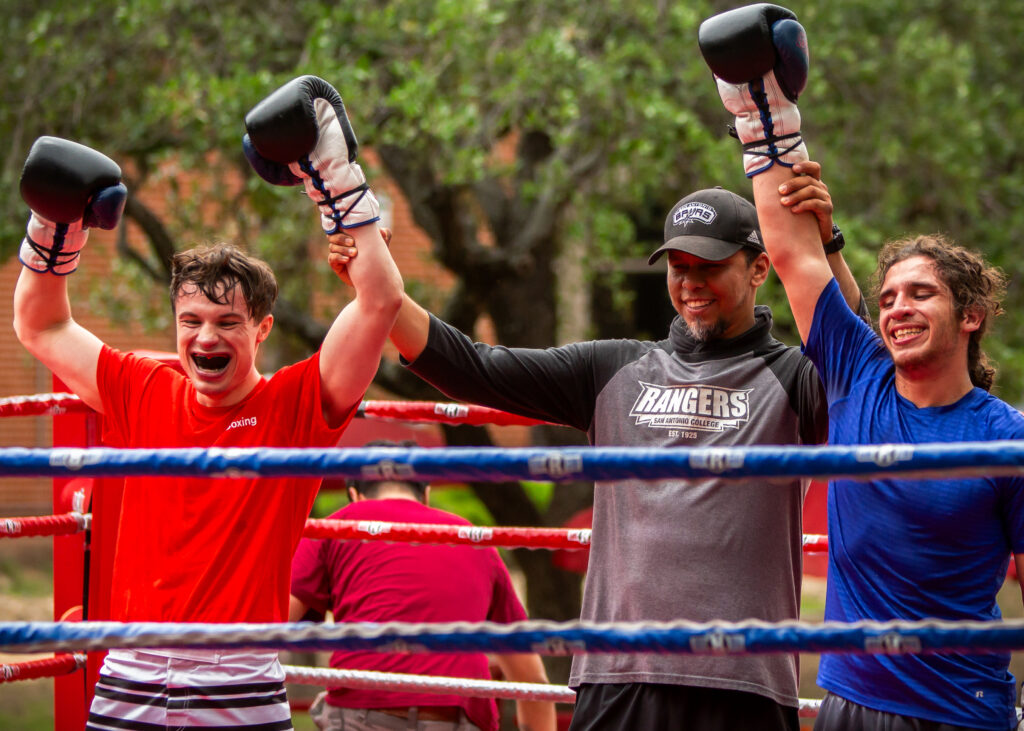
Ramos gave Rankin his nickname: Chainsaw Man.
“I knew Cameron was a big fan of the anime,” Ramos said. “So in the middle of a fight when I could see he was scared, I said, ‘It’s time for you to be the Chainsaw Man.’”
He won the match. The nickname stuck.
Rankin serves as president of SAC’s boxing team, and he keeps a picture of the team, which he now calls family, on his desk at home.
“I have friends now, a community,” he said. “I genuinely care about my teammates like they’re brothers and sisters. If one of them is struggling, I’m going to be there for them.”
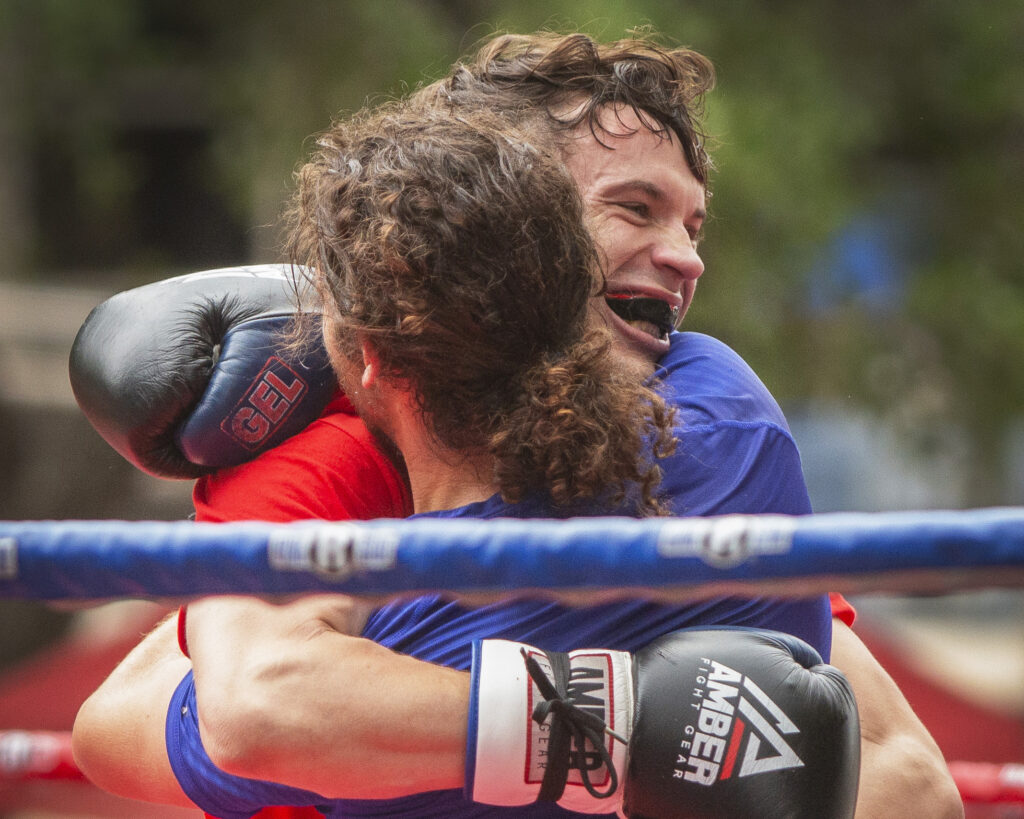
Rankin has won four fights and lost one in his amateur career so far. He finished second in the 2023 San Antonio Golden Gloves competition’s novice welterweight category, and his goal is to become a Golden Gloves champion in 2024.
“I’m super proud of him and how far he has come,” Ramos said.
Rankin also recently partnered with two other students to launch a small business — Radiant Power Washing.
“Alamo colleges changed my life,” he said. “I was depressed, angry and alone for so long. I didn’t have any purpose in my life, and I was emotionally unstable. I’ve grown so much, and now my life has purpose. For the first time in my life, I’m actually happy, and I like the person I am. I understand that I have value and that I can be someone.”

